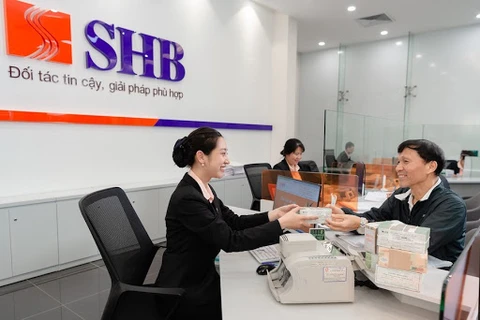 A likely improvement in external demand in the fourth quarter should support manufacturing growth, forecast at roughly 7.3 percent in full-year 2020. (Photo: VNA)
A likely improvement in external demand in the fourth quarter should support manufacturing growth, forecast at roughly 7.3 percent in full-year 2020. (Photo: VNA) Hanoi (VNA) - Standard Chartered expects Vietnam’s economy to grow by 3 percent in 2020 and surge to 7.8 percent in 2021. Rising consumption on improving sentiment, and faster manufacturing will drive growth in the last quarter of this year.
The forecast is highlighted in Standard Chartered’s recently published Global Research report entitled “Vietnam – Q3 disruption, but recovery remains intact”.
“Vietnam is one of the few Asian economies to have registered positive growth so far this year, despite the second wave of infections. We expect the fourth quarter growth to increase as domestic activity resumes and sentiment picks up. Improving services growth and infrastructure investment should help Vietnam outperform the rest of Asia. We maintain our positive view on Vietnam’s medium- and long-term economic outlook,” said Chidu Narayanan, economist for Asia, Standard Chartered Bank.
According to the latest macroeconomic report on Vietnam, a likely improvement in external demand in the fourth quarter should support manufacturing growth, forecast at roughly 7.3 percent in full-year 2020. Both exports and imports are expected to increase as a result. Trade is likely to remain in surplus for the rest of 2020 as exports and imports move in tandem.
Construction activity is anticipated to improve in the fourth quarter, supported by increased public infrastructure investment. Private consumption, accounting for nearly 68 percent of GDP, should grow strongly in the fourth quarter on improving domestic sentiment. Private investment, however, is likely to remain subdued on lingering uncertainty about medium-term demand.
Standard Chartered’s economists project newly registered FDI inflows into Vietnam to decline in 2020, but remain strong at close to 13 billion USD. Lingering uncertainty on global demand and depressed investment sentiment are likely to weigh on FDI inflows in the medium term.
While the country stands to benefit from the ongoing relocation of manufacturing amid elevated geopolitical tensions, inflows are likely to be lower than in previous years. Further government measures and a sustained move of low-tech manufacturing should support FDI inflows.
The study also forecasts that the State Bank of Vietnam (SBV) will remain accommodative in the near term to support growth. The central bank cut the policy rate by a further 50bps to a historical low of 4 percent on October 1, in line with Standard Chartered’s forecast from May 2020. The central bank’s 200bps of rate cuts in the year to date and the reopening of the economy should aid further credit growth in the near term./.
VNA























